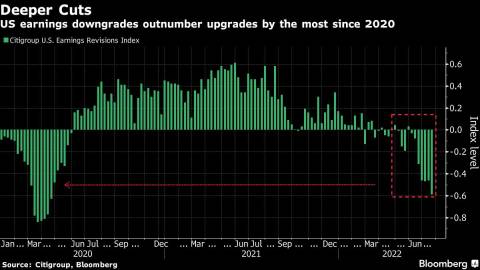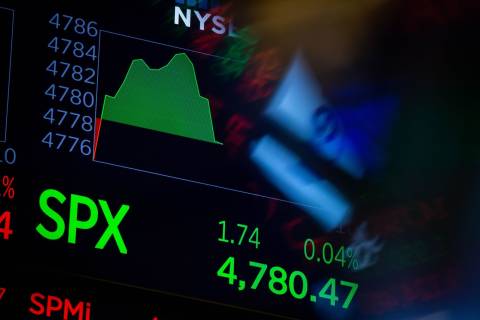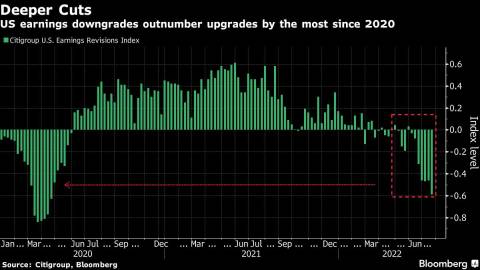(Bloomberg) -- With the busiest week of the second-quarter earnings season over, investors are relieved that results are holding up better than feared, according to Goldman Sachs Group Inc. strategists.

Of the 56% of S&P 500 companies that have reported earnings so far, more than half have beaten analyst estimates -- above the long-term average of 47%, strategists led by David J. Kostin wrote in a note dated July 29. That, combined with “dovish messaging” from the Federal Reserve, has provided a boost to equities, they said.

Still, at 52%, the rate of earnings beats is trailing the 62% average pace set in the last five quarters, Kostin said, suggesting that stocks are not out of the woods yet after posting their strongest monthly rally since November 2020.

Although investors have been optimistic that corporate profits are proving resilient to the impact of scorching inflation and glum consumer sentiment, strategists are divided on the course for earnings estimates through the second half of the year -- and its impact on equities -- especially against the backdrop of a looming recession.
Morgan Stanley’s Michael J. Wilson said in a note on Monday that the rebound in stocks is likely to be short lived as estimates are cut further and the economy heads into a contraction amid continued policy tightening by the Fed. “We think the fourth quarter is the most likely time of year when companies will decide to ‘kitchen sink’ the estimates in order to preserve hope for a better 2023,” he said.
Their counterparts at JPMorgan Chase & Co. take a contrarian view. Although they agree that earnings expectations are “finally” likely to deteriorate in the second half, revenues are still expected to rise meaningfully and “any earnings weakness is unlikely to be material,” strategists led by Mislav Matejka wrote in a note.
The Goldman team, meanwhile, expects volatility in equity markets to remain well below the highs seen in the first half of the year. There’s also a chance that recent historical volatility could fall further, even in the event of a US recession, they said.
More stories like this are available on bloomberg.com
©2022 Bloomberg L.P.
Author: Sagarika Jaisinghani
